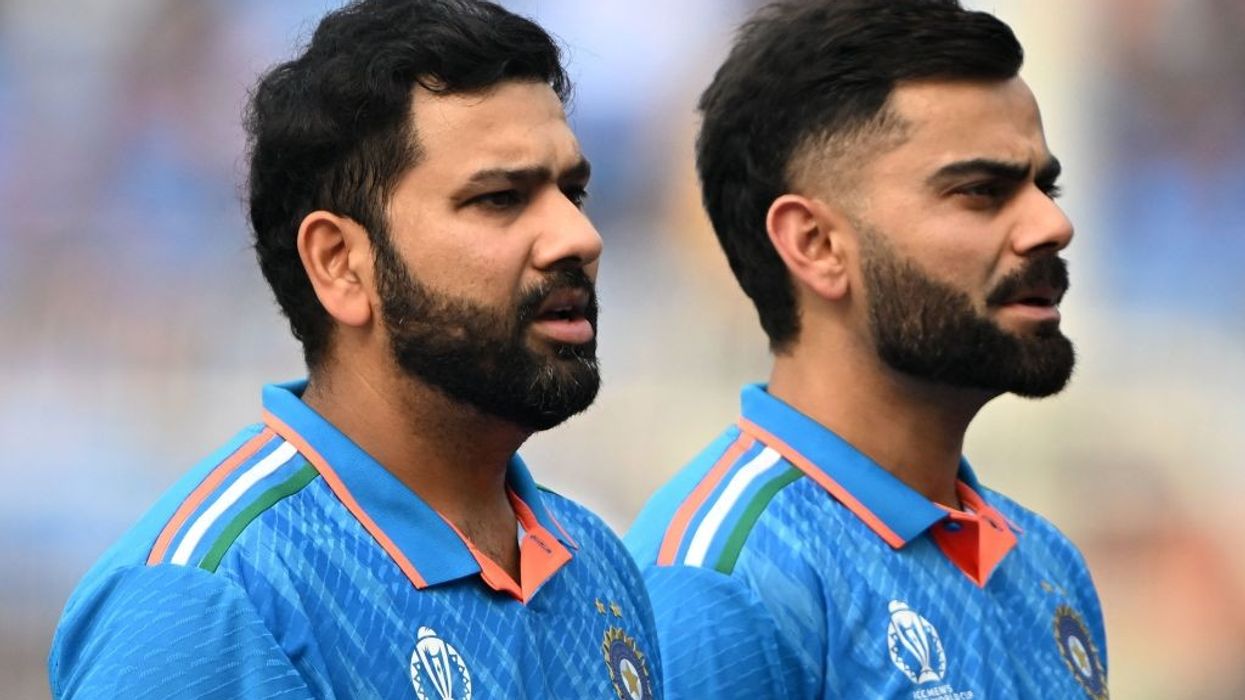TWO of Indian cricket’s all-time greats, skipper Rohit Sharma and superstar Virat Kohli, announced their retirement from T20 Internationals after playing monumental roles in the team’s second world title conquest in the format.
Kohli was the first to declare his decision after being adjudged player of the match for his sublime 76 in the seven-run win over South Africa in the final against South Africa in Barbados. Soon after, Rohit also announced that having achieved what he came for, it was time to step aside.
“This was my last T20 World Cup and this is exactly what we wanted to achieve. This is an amazing game. I was telling Rohit (Sharma) when we went out to bat, I was like, one day you feel like you can’t get a run and then you come out and then things happen. God is great,” the 35-year-old Kohli told host broadcasters Star Sports after bagging the player of the match award.
“I bow my head in gratitude. I’m just really grateful I was able to get the job done for the team on the day that it mattered the most."
Rohit, whose searing 41-ball 92-run knock in the Super 8s clash against Australia would be remembered for years to come, chose the post-match press conference for his statement.
“This was my last game as well. No better time to say goodbye. I wanted this (trophy) badly. It’s very hard to put in words,” Rohit told the post-match press conference after ending India’s over-a-decade long title drought.
“This what I wanted and it happened. I was very desperate for this in my life. Happy that we crossed the line this time,” he added.
The 37-year-old had led India in the 2022 T20 World Cup where the team was ousted in the semifinals by eventual champions England.
A year later, India reached the final of the 50-over World Cup at home under his leadership, but succumbed to Australia in the summit clash at Ahmedabad.
Rohit leaves T20Is with 4231 runs from 159 matches, having made five hundreds and 32 fifties. He continues to be active in the Test and ODI formats.
Kohli hoped that the next generation of players will take India to loftier heights.
“It’s time for the next generation to take over. It’s a two-year cycle (for next T20 WC), there’re some amazing players playing in India. They’re going to take the team forward in the T20 format and do wonders as we’ve seen them do in the IPL," he said.
“I have no doubts that they’ll keep the flag waving high and really take this team further from here now.”
In 125 T20I matches, Kohli scored 4188 runs at an average of 48.69 with 122 being his highest. That was his only T20 century – coming against Afghanistan in September 2022.
Over the years, Kohli revelled in taming big occasions and on his last day as a T20I player for India, he kept that tradition.
“It was now or never kind of a situation I knew. This is my last T20 game for India. It’s the last World Cup that I was going to play. So, I wanted to make the most of it and this was our aim. We wanted to win an ICC tournament.” Kohli said the secret to winning the clutch points is respecting them.
“As I said, it was the occasion that helped me put my head down and just respect the situation rather than trying to force things out there and just really play the game that my team wanted me to play,” he noted.
However, Kohli said he was determined to call time on his T20I career even if India had lost the title clash.
“This was an open secret. It was not something that I was not going to announce even if we had lost. This was going to be my last T20 World Cup for India,” he said.
Kohli was delighted for his long-time teammate and skipper Rohit Sharma as the latter grabbed a much-cherished World Cup In fact, this was Rohit’s second T20 world title as he was also a part of the India side that won the trophy in 2007 under the legendary Dhoni.
“It’s been a long wait for us to win an ICC tournament. It’s not just me alone. You look at someone like Rohit as well. He’s played nine T20 World Cups. This is my sixth. So, he deserves it as much as anyone else in the squad," he said.
However, Kohli admitted that he came into the final without much confidence after a lean run in the group and Super Eight stages.
“It’s hard to explain…the emotions I felt after the game. I knew what kind of mindset I was in. I wasn’t very confident in the last few games. I wasn’t feeling really good out there," he said.
“But when God has to bless you with something, he shows you in ways that you can’t imagine. That’s why I said I’m really grateful and humbled right now.” As someone who generally presents a tough exterior to the world, Kohli tore that mask away and showed his tender side to the world.
“It’s been difficult and hence the emotions. It’s really difficult to hold things back. I think it’s going to sink in a little later and the emotions are going to come to the surface little later. But it’s just an amazing day and I couldn’t be more thankful,” he concluded.
(PTI)





